Ukraine’s Parliament Appoints Denys Shmyhal as Minister of Defence. On July 17, the Verkhovna Rada of Ukraine approved the appointment of Denys Shmyhal as the country’s new Minister of Defence.
The decision was supported by 267 MPs. Earlier, Volodymyr Zelenskyy nominates Denys Shmyhal as Ukraine’s new Defence Minister.
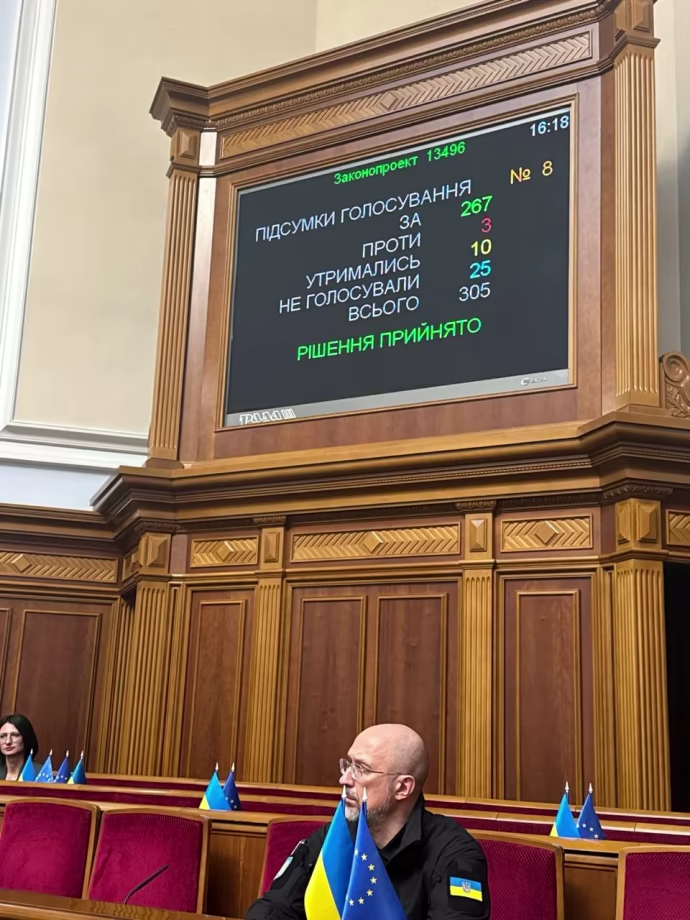
Here’s how the factions voted:
- Servant of the People – 200 votes,
- European Solidarity – 0 votes,
- Batkivshchyna – 11 votes,
- Platform for Life and Peace – 11 votes,
- Holos – 1 vote,
- Restoration of Ukraine – 10 votes,
- For the Future – 9 votes,
- Trust – 10 votes,
- Non-affiliated MPs – 15 votes.
Unlike most ministers who are nominated by the Prime Minister, the Ministers of Defence and Foreign Affairs are appointed by Parliament based on nominations from the President.
During his Shmyhal’s First Speech as Defence Minister in the Rada, he emphasized that effective military management and trust in commanders are crucial to boosting voluntary enlistment and avoiding the need for forced mobilization. He pledged to ensure proper logistics and to reorient the Armed Forces’ systems toward serving Ukrainian soldiers.
He also committed to scaling up weapons production and improving the overall functionality of the Ministry.
Shmyhal acknowledged issues of so-called “busification” – forced conscription by questionable means – but insisted mobilization is proceeding according to plan and that many are still volunteering to defend Ukraine.
This appointment comes shortly after Shmyhal was dismissed as Prime Minister, a role he had held for more than five years – the longest-serving PM in Ukraine’s history. He is now succeeded by Yuliia Svyrydenko.
According to ZN.UA, Shmyhal’s appointment is seen as a pragmatic move by President Zelenskyy and Head of the Presidential Office Andriy Yermak. Shmyhal, described as loyal, experienced, and non-political, is considered the most reliable figure for one of Ukraine’s most powerful and resource-intensive ministries during wartime.
Political analysts say the pool of trusted candidates within Zelenskyy’s circle is limited and that loyalty often outweighs professional expertise. However, compared to his predecessor Rustem Umerov, Shmyhal is widely viewed as a more capable administrator and a seasoned negotiator.
Still, challenges remain. Military bureaucracy is notoriously rigid and inefficient. Integrating the Ministry of Strategic Industries into the Defence Ministry adds bureaucratic strain to an already troubled institution. Whether Shmyhal can bring clarity and effectiveness to one of Ukraine’s most dysfunctional ministries remains to be seen.
In also worth mention that during the first remarks as Prime Minister, Yuliia Svyrydenko emphasized in the Verkhovna Rada arming the military and increasing domestic weapons production. She said Ukraine currently meets 40% of its defense manufacturing needs and aims to push that figure to at least 50%.
Svyrydenko also pledged to:
- Lead the country toward economic self-reliance,
- Conduct a full audit of government expenditures, and
- Support Ukrainian businesses.
Her economic stance appears pragmatic, but drew criticism during her speech for endorsing the government’s controversial decision not to appoint a new director of the Economic Security Bureau, despite expert concerns over legal violations.
Nonetheless, both Shmyhal and Svyrydenko now stand at the center of Ukraine’s wartime governance – one managing the battlefield, the other the economy.
Tags: Denys Shmyhal EMPR.media ministry of defence Ukraine Politics Ukraine war leadership Verkhovna Rada appointment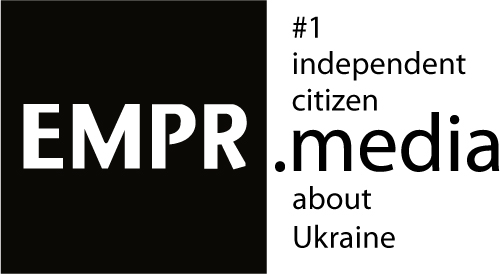
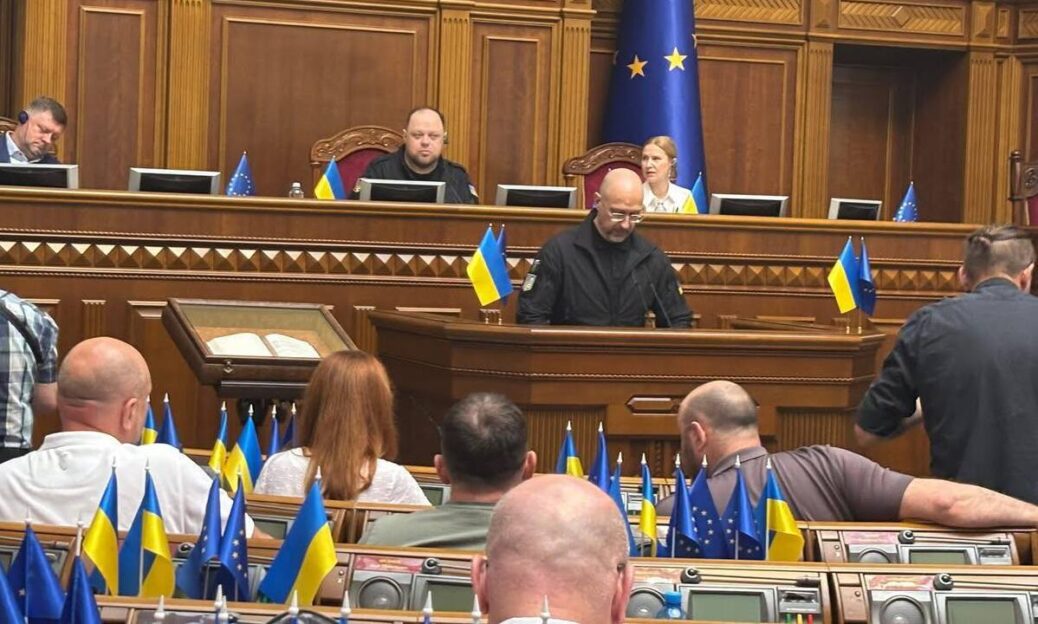


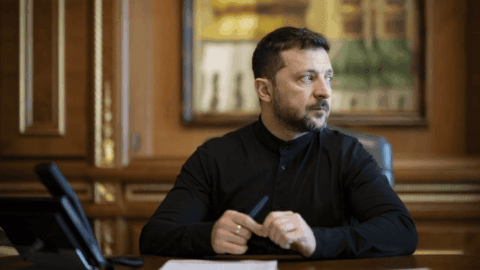
![Outdoor photo exhibition by Ukrainian photographer Oleksandr Hlyadelov on the fence of France’s Ministry for Europe and Foreign Affairs in Paris. :contentReference[oaicite:1]{index=1}](https://empr.media/wp-content/uploads/2026/02/photo-480x270.png)

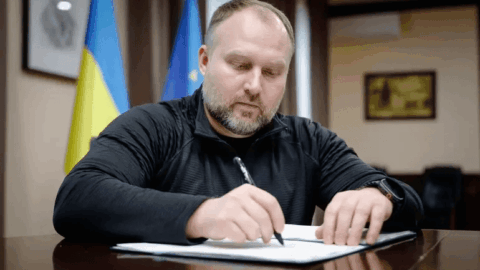

![NATO Secretary General Mark Rutte at the Verkhovna Rada in Kyiv, announcing allied troops, warplanes and naval support will follow a peace agreement with Russia. :contentReference[oaicite:2]{index=2}](https://empr.media/wp-content/uploads/2026/02/marc.png)




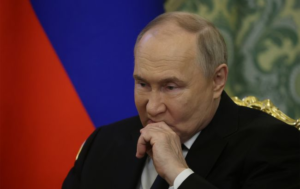


![Outdoor photo exhibition by Ukrainian photographer Oleksandr Hlyadelov on the fence of France’s Ministry for Europe and Foreign Affairs in Paris. :contentReference[oaicite:1]{index=1}](https://empr.media/wp-content/uploads/2026/02/photo-300x168.png)


